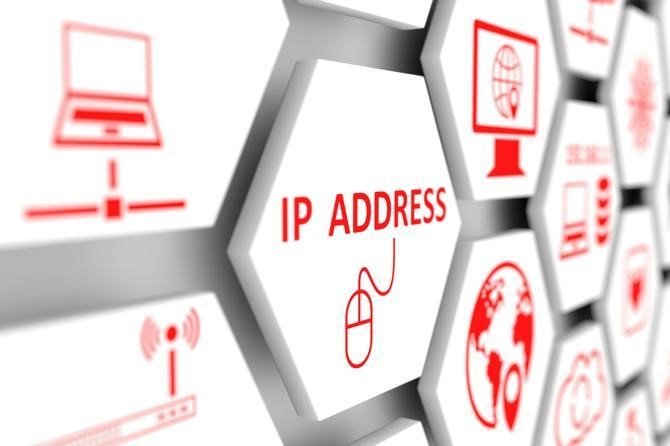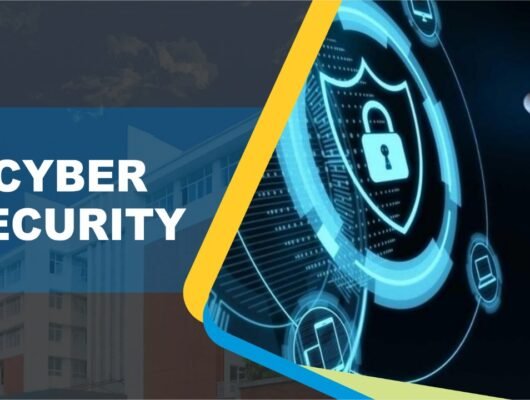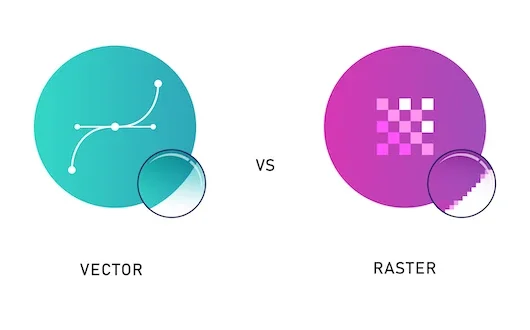Introduction
Imagine trying to send a birthday card without knowing the recipient’s address. No matter how astute the message, it won’t reach them without a goal. That’s precisely how the web works — and each gadget associated to it needs an address to send and get data. This advanced address is called an IP address.
An IP address (brief for Web Convention address) is a special identifier doled out to each gadget that interfaces to the web. Whether it’s your phone, tablet, savvy TV, or indeed your smartwatch — each one has an IP address that permits it to communicate with websites, servers, and other gadgets around the globe.
But why ought to you care around something that appears so technical?
Because IP addresses are at the center of everything you do online. From streaming your favorite appears to sending emails, shopping, and utilizing social media, your gadget is continually sending and getting information — and it all happens through your IP address. It’s how the web knows who you are, where you are, and where to send the data you’ve requested.
Understanding IP addresses isn’t fair for IT aces. In a world where security, cybersecurity, and computerized network matter more than ever, knowing how IP addresses work is an basic portion of being an educated web client.

What Is an IP Address?
At its center, an IP address (Web Convention address) is a string of numbers utilized to recognize a gadget on a organize. It’s like the postal address of your gadget — it tells other gadgets where to discover you, and where to provide the data you’ve requested.
When you sort a web address into your browser , your gadget employments an IP address behind the scenes to discover the website’s server. That server, in turn, employments your IP address to send information — like content, pictures, and recordings — back to you.
The Anatomy of an IP Address
There are two main versions of IP addresses currently in use:
IPv4
The most common version. It looks like this:
192.168.1.1
IPv4 addresses are made up of four numbers (called “octets”) separated by periods. Each number ranges from 0 to 255.
IPv6
A newer format designed to replace IPv4 (which is running out of addresses). IPv6 looks like this:
2001:0db8:85a3:0000:0000:8a2e:0370:7334
It uses hexadecimal characters and colons, and allows for billions more unique addresses than IPv4 — essential for a world filled with smartphones, smart TVs, and IoT devices.
Why Do We Need IP Addresses?
Every time you go online, your gadget needs to:
- Send demands (like stacking a webpage)
- Receive reactions (like the webpage itself)
- Communicate with other gadgets (like spilling from Netflix or joining a Zoom call)
None of this would be conceivable without IP addresses acting as the advanced return address.
In brief, without IP addresses, the web basically wouldn’t work.

Types of IP Addresses
Not all IP addresses are created equal. Depending on how and where they’re utilized, IP addresses drop into a few categories. Understanding the distinctive sorts makes a difference you see how gadgets interface, communicate, and remain secure on the internet.
a. IPv4 vs IPv6
IPv4 (Internet Protocol version 4)
- The unique and most broadly utilized IP version.
- Uses a 32-bit address format.
- Example: 192.0.2.1
- Limited to around 4.3 billion special addresses, which sounds like a parcel — until you consider the number of gadgets online today.
IPv6 (Internet Protocol version 6)
- The next-generation convention made to fathom IPv4’s depletion problem
- Uses a 128-bit address format.
- Example: 2001:0db8:85a3:0000:0000:8a2e:0370:7334
- Capable of producing 340 undecillion one of a kind addresses — that’s a number with 36 zeroes!
b. Open vs Private IP Addresses
Public IP
- Assigned by your Internet Service Provider (ISP).
- Unique over the whole internet.
- Used when your gadget communicates exterior your neighborhood organize — like getting to websites or online services.
- Can be inactive or energetic (more on that next).
Private IP
- Used inside a neighborhood organize (like in your domestic or office).
- Not unmistakable on the internet.
- Commonly relegated to gadgets like computers, smartphones, printers, and routers.
- Example: 192.168.0.5 or 10.0.0.1
c. Static vs Dynamic IP Addresses
Static IP
- An address that doesn’t alter over time.
- Manually alloted and frequently utilized for or servers, trade systems, administrations requiring steady openness (like farther get to or facilitating a website).
- Pros: Unwavering quality, simple inaccessible access.
- Cons: Simpler to track, possibly less secure.
Dynamic IP
- Temporarily relegated by a DHCP server (more often than not your switch or ISP).
- Changes occasionally or when you reconnect to the network.
- Ideal for most domestic clients — it’s programmed and makes a difference with privacy.
- Pros: More secure, cost-effective.
- Cons: Not perfect for facilitating servers or getting to a organize remotely.
How IP Addresses Work
Now that you know what an IP address is and the diverse sorts, let’s investigate how they really work. Think of the web as a enormous worldwide conveyance framework — and your IP address is how the framework knows where to send the bundles (information) you request.
- Connecting to a Network
- Making a Request
- Using the DNS (Domain Name System)
- Data Exchange
Why IP Addresses Matter
You might not think around your IP address each day, but it’s quietly working in the background of about everything you do online. From gushing a motion picture to checking your mail, IP addresses are fundamental to making it all happen — safely and accurately.
Here’s why they matter:
1. They Enable Internet Communication
Without an IP address, your gadget wouldn’t be able to send or get data over the web. It’s like attempting to make a phone call without a phone number — there’s no way for the arrange to distinguish you or interface the dabs between sender and receiver.
2. Location & Geolocation Services
IP addresses regularly donate a common thought of your geographic area — city, locale, or nation — based on your ISP’s information. That’s why:
- Websites show substance pertinent to your region.
- Apps like Google Maps or Uber can offer neighborhood results.
- Streaming administrations confine or offer certain substance based on your nation (geo-blocking).
3. Online Tracking & Advertising
Advertisers and websites utilize your IP to track your browsing behavior, personalize substance, and provide focused on advertisements. This can be helpful — or intrusive, depending on your protection preferences.
Ever looked for something and at that point seen advertisements for it all over? Yup — that’s your IP (among other things) doing its job.
4. Arrange Security & Get to Control
Businesses and organizations frequently utilize IP addresses to:
- Grant or confine get to to inner systems.
- Monitor worker activity.
- Detect suspicious logins or hacking attempts.
Firewalls and security program utilize IPs to square malevolent clients and avoid cyberattacks, such as DDoS assaults (Conveyed Refusal of Service).
5. IP Bans & Restrictions
Have you ever been blocked from a site or online diversion? You may have experienced an IP boycott. Stages frequently square clients based on IP to:
- Stop spam or damaging behavior.
- Enforce territorial limitations (such as for gaming servers or online services).
6.Remote Work & Device Access
With inactive IP addresses, clients can:
- Access domestic or office systems remotely.
- Set up servers, webcams, or smart home systems that are reachable from anywhere.
This is particularly vital for IT experts, businesses, and anybody overseeing inaccessible systems.

Protecting Your IP Address
Why Should You Protect Your IP Address?
- Prevent Location Tracking
- Avoid Targeted Attacks
- Bypass Geo-Restrictions
- Maintain Online Privacy
Ways to Protect Your IP Address
- Use a VPN (Virtual Private Network)
- Use a Proxy Server
- Use Tor Browser
- Avoid Clicking Suspicious Links
- Secure Your Home Network
Fun Facts & Myths
Indeed in spite of the fact that IP addresses are a profoundly specialized portion of the web, there’s no deficiency of astounding realities and well known myths encompassing them. Let’s isolated reality from rumor — and appreciate a few interesting truths along the way.
🎉 Fun Facts
1. The Unique IPv4 Plan Couldn’t Envision the Advanced Internet
When IPv4 was created in the 1980s, 4.3 billion addresses appeared like more than sufficient. No one envisioned a world where your indoor regulator, doorbell, and fridge would all require their possess IPs.
2. IPv6 Has Sufficient Addresses for Each Grain of Sand on Earth… Times a Billion
IPv6 offers 340 undecillion addresses (that’s 340 taken after by 36 zeros). It’s so endless that we might allot numerous IPs to each particle in your body, and still not run out.
3. Your IP Can Alter Without You Realizing
Most domestic clients have a energetic IP that can alter each time you reboot your switch or after a certain period set by your ISP. That’s why a few websites inquire you to reverify your area or device.
4. Your IP Can Be Shared by Thousands (NAT)
With Network Address Translation (NAT), hundreds or indeed thousands of clients might show up to share a single open IP. It’s how ISPs and switches make effective utilize of restricted IP space.
5. Some IP Addresses Are Reserved and Can’t Be Used Publicly
- 127.0.0.1 — the “loopback” address (used to test your own network).
- 192.168.x.x — reserved for private local networks.
- 0.0.0.0 — used as a placeholder or default in routing.

Conclusion
In a world where about each gadget — from your phone to your cooler — interfaces to the web, understanding IP addresses isn’t fair for techies any longer. It’s a fundamental computerized education expertise that enables you to way better get it how the online world capacities around you.
From empowering communication and securing security to opening get to to substance and progressing security, your IP address plays a calm however pivotal part in your day by day computerized life. It’s your online character, your area stick, and your handshake with the web — all rolled into one.
🚀 Take Action:
- Find your IP and get it whether it’s open or private, energetic or static.
- Check your device settings to see how you’re connected.
- Explore security apparatuses like VPNs and firewalls.
- Secure your organize with solid passwords and switch settings.
These little steps go a long way in ensuring your information, moving forward your web encounter, and giving you more control over your online life.
💡 Final Thought:
The web might feel like enchantment, but behind each press, stream, and download is a complex move of numbers and conventions — and it all begins with your IP address.
Now that you know how it works, you’re not fair utilizing the web — you get it it.







